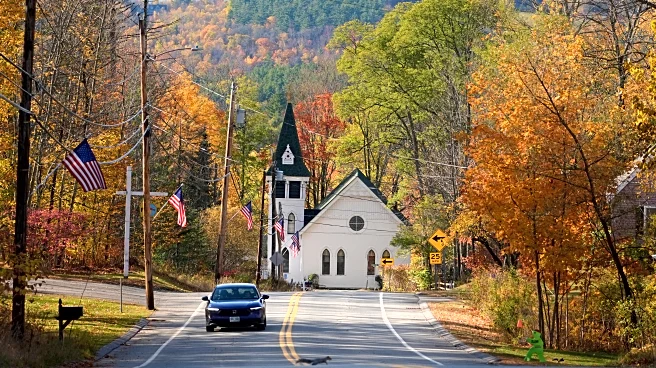FRANCONIA, N.H. (AP) — The closing of a health center in rural New Hampshire has raised concerns that the projected cuts in Medicaid are already taking a toll.
Last month, a site of the Ammonoosuc Community Health Services in Franconia, a town of around 1,000 people, closed for good.
Ammonoosuc officials and a Democratic senator have blamed Medicaid cuts for the closure of the facility that served 1,400 patients from Franconia, Easton, Lincoln and Sugar
Hill. These are all tiny communities around the White Mountains, whose patients typically are older and sicker than in other parts of the state.
The closure of the Franconia center reflects the financial struggles facing community health centers and rural health care systems more broadly amid Medicaid cuts and a feared spike in health insurance rates. The government shutdown, which ended last week, was driven by a Democratic demand to extend tax credits, which ensure low- and middle-income people can afford health insurance through the Affordable Care Act, or ACA.
More than 100 hospitals closed over the past decade, according to the Center For Healthcare Quality and Payment Reform, a policy and advocacy group, and more than 700 more hospitals are at risk of closure. A branch of the HealthFirst Family Care Center, a facility in Canaan, New Hampshire also announced it was closing at the end of October due in part to “changes in Medicaid reimbursement and federal funding” for these facilities.
On average, the federally-funded community health centers like the one in Franconia are losing money, relying heavily on cash reserves, making service changes and sometimes closing locations to stay afloat, NACHC found. Nearly half have less than 90 days’ cash on hand, according to the association. And the future is even more bleak with at least 2 million community health center patients expected to lose Medicaid coverage by 2034 and 2 million more who are newly uninsured turning to the centers for care.
Ed Shanshala, the CEO of Ammonoosuc, said the Medicaid cuts are to blame for the closure of the Franconia center.
Shanshala runs a network of five health centers in New Hampshire which relies more than $2 million in federal funding — out of a $12 million budget. He faced a $500,000 shortfall due to the cuts and realized closing Franconia would save about half that money. It also was the only facility where they leased space.
“We’re really left with no choice,” Shanshala said, adding the closure would save $250,000. Finding additional cuts is hard, given that the centers provide services to anyone under 200% of federal poverty levels, he said. And if he cuts additional services, Shanshala fears some patients will end up in a hospital emergency room or “stop engaging in health care period.”
Susan Bushby, a 70-year-old housekeeper, talked about how much she loved the staff and feared going to a new health center. She wouldn't know her way around a larger facility and wouldn't have the same rapport with the people there.
“I was very disturbed. I was down right angry,” said Bushby, who was brought to tears as she discussed the challenges of starting over at a new health center. “I just really like it there. I don’t know, I’m just really going to miss it. It’s really hard for me to explain, but it’s going to be sad.”
Marsha Luce, whose family moved from Washington, D.C. area, in 2000, is especially concerned about the impact on her 72-year-old husband, a former volunteer firefighter who has a left ear and part of his jaw removed due to cancer. He also has heart and memory issues.
She worries about longer waits to see his doctor and the loss of relationships built up over decades in Franconia.
“It’s going to be hard,” she said. “But it’s a relationship that’s going to be missed. It’s a relationship that you can talk to people and you tell them something and you go, yeah, well, I’ve had cancer. Oh, let’s see. Oh, yeah. There it is in your chart. Do you know what I mean?”















